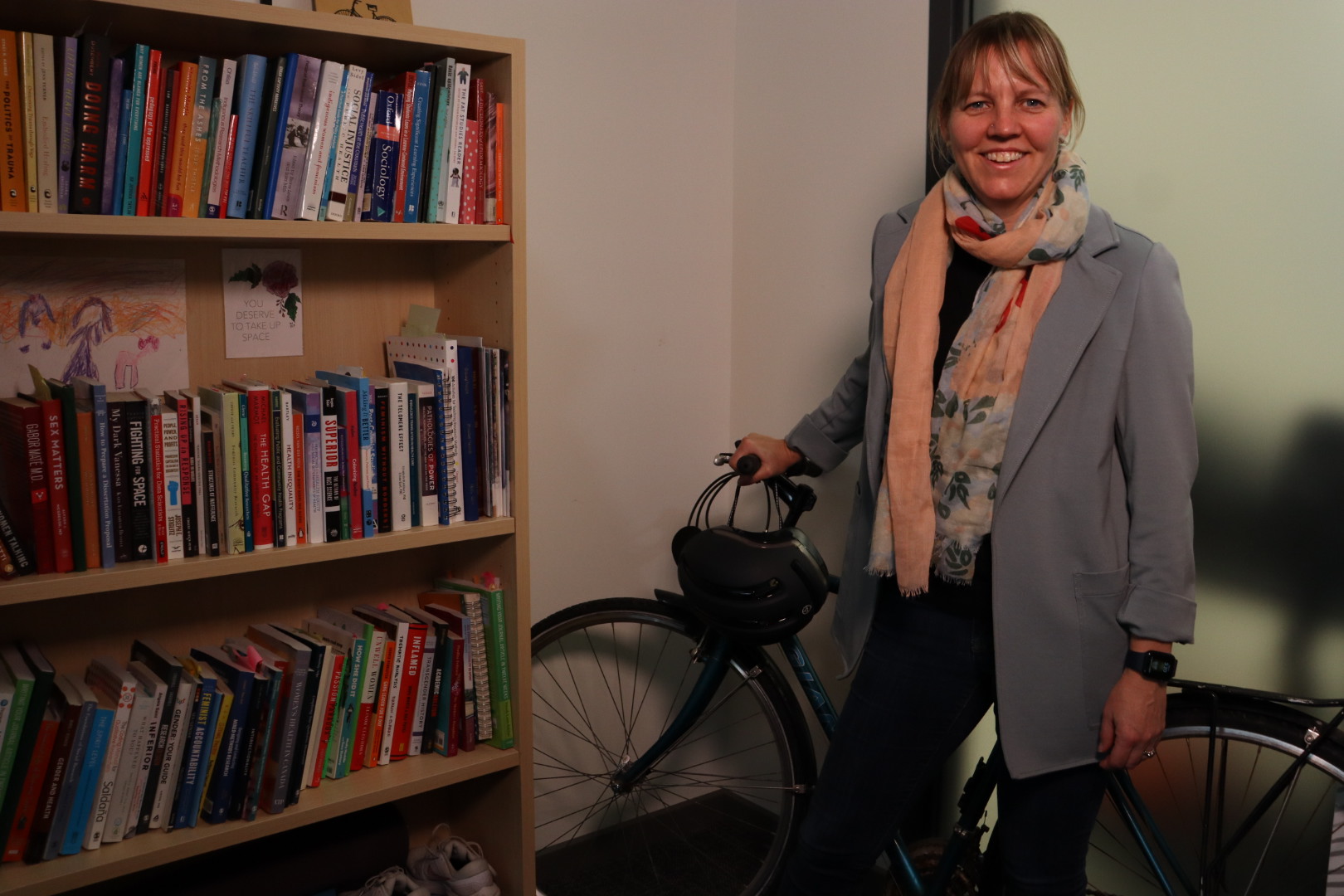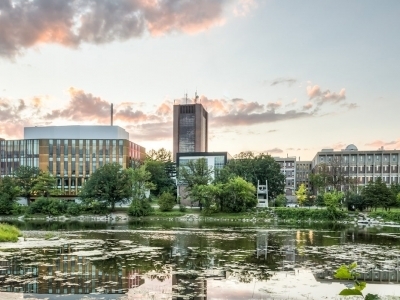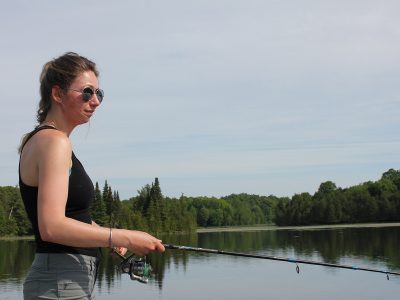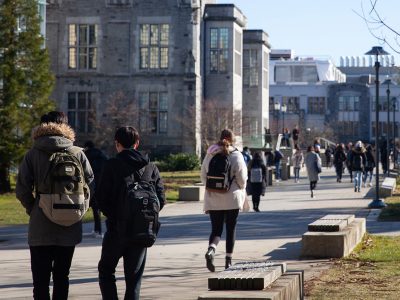By Jena Lynde-Smith
Content warning: please note that the article includes information about family and gender-based violence. We understand that this can trigger strong reactions and we encourage the community to connect with Carleton University’s Sexual Assault Support Centre and/or Health and Counselling Services for support. Additional community supports can also be found here.
Physical activity has significant mental, physical and emotional benefits, but getting to the gym or participating in a sport isn’t always tangible for those who have experienced or are experiencing family or gendered-based violence. Francine Darroch, a professor in Carleton’s Department of Health Sciences, is addressing this problem with a timely project.
“People certainly know the benefits of physical activity, but they don’t necessarily know how or where to get involved,” says Darroch. “More importantly, they often don’t feel safe in public physical activity spaces. What we’re hoping to do is figure out practical strategies for how organizations can create more inclusive and safe environments.”
Family violence is a serious public health problem, and currently makes up one-quarter of all violent crime in Canada. In 2019, women and girls accounted for 67% of all victims of family violence and 79% of all victims of intimate partner violence. According to a survey led by Statistics Canada, 44% of women reported experiencing some form of psychological, physical, or sexual violence by an intimate partner in their lifetimes. The impact violence leaves on survivors is immense.
Addressing this issue has been made a priority in Canada. On Oct. 18, the Government of Canada announced they will be providing nearly $2 million dollars to support and projects that prevent and address family violence. Darroch’s project is receiving almost $1 million dollars.
An Equity-Driven Approach
The project, “Leveraging trauma- and violence-informed physical activity to support individuals who have experienced family violence: A community-based participatory approach,” will establish physical activity programs that are accessible to survivors of family or gender-based violence.
“Not everybody has the same level of access,” Darroch says. “People who have experienced any sort of trauma or violence or gender-based violence are much less likely to engage in physical activity because there’s obviously a number of competing priorities happening in their lives.”
Darroch is working with a co-principal investigator from York University, Prof. Lyndsay Hayhurst, several researchers from Carleton’s Faculty of Science, and at least six graduate students on the project. They are partnered with four non-profit organizations that provide services to survivors of violence — YWCA Crabtree Corner in Vancouver, St. Mary’s Home, Ottawa Community Housing Foundation, and MLSE Launchpad in Toronto.

Francine Darroch
The first phase of the project is a research study, which Darroch says is a monumental task. It will include service provider interviews, surveys, and focus groups. It will also involve geographic information systems (GIS) research and participatory mapping. The GIS research will look at neighbourhood safety indexes, socioeconomic status, and recreation centre access, while participatory mapping will involve researchers physically exploring neighbourhoods with residents who have experienced violence.
“We’ll walk through the communities with participants, and they’ll tell us an area doesn’t feel safe for reasons like there being no streetlights, these conversations are very important to us,” says Darroch.
Once their initial study is complete, Darroch’s team will begin piloting physical activity programming at their partner sites. The programs, which will be co-designed with community members, may include things like a walking program, basketball, strength and conditioning, or yoga. They will be open to women who have experienced family and gendered-based violence and their families, and will offer childcare and activities for children where available.
“We really want the programs to be developed by them, for them,” Darroch says.
Darroch’s team also plans to create several educational resources. These include virtual learning spaces for researchers, community programmers and individuals with lived experience, and comprehensive training modules for organizations. The training modules will provide strategies and best practices for creating an accessible environment for survivors. Organizations will be required to complete this training prior to employing programming and engaging with communities.
“It’s important that organizations have core understandings of how trauma and gender-based violence impacts mental, physical, and emotional well-being and what potential triggers may manifest when they are being physically active,” Darroch says.
As a lover of exercise, former competitive runner, and now as an organizer of a non-profit kids’ running club, Darroch has made it her mission to making sure survivors of trauma have access to physical activity.
“This isn’t going to solve all of our problems, but I think it’s one positive step in the right direction.”
During the 16 Days of Activism Against Gender-Based Violence, Carleton University will share a variety of resources, information, stories and videos to help grow awareness about this issue and encourage everyday activism and commitment to ending gender-based violence. Visit our 16 Days of Activism page to learn more.
Friday, November 25, 2022 in Faculty of Science, International Women's Day
Share: Twitter, Facebook



